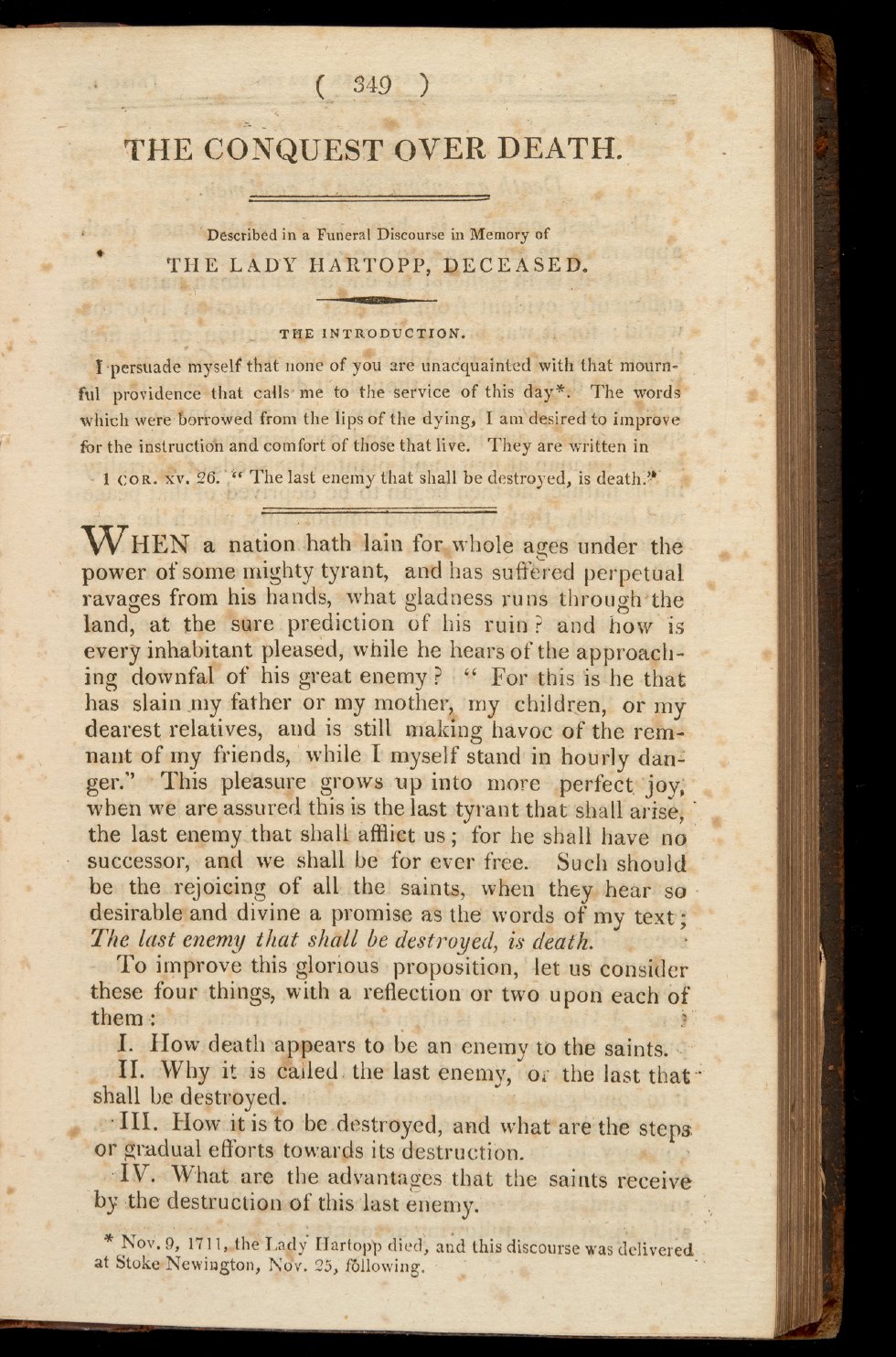

t
349 )
THE
CONQUEST OVER DEATH.
Described
in
a Funeral Discourse
in
Memory
of
THE
LADY
HARTOPP,
DECEASED.
T1
E
INTRODUCTION.
t'
persuade myself
that
none
of
you
are unacquainted
with
that
mourn
-
ful providence
that
calls- me to
the service of this day
*.
The
words
which
were
borrowed from
the
lips
of the
dying,
I
am desired to
improve
for
the instruction and comfort of
those
that
live.
They
are
written
in
1
Cox.
xv.
26.
'r" The
last enemy
that
shall
be destroyed,
is
death.
WHEN
a nation. bath lain for
whole ages
under
the
power of
some mighty
tyrant,
and
has suffered
perpetual
ravages
from
his
hands, what gladness
runs
through'the
land,
at
the sure prediction
of
his
ruin
?
and how
is
every
inhabitant
pleased,
while he
hears
of
the
approach-
ing
downfal
of
his
great
enemy
?
"
For
this
is he
that
has slain
my father or
my
mother,
my
children,
or
my
dearest
relatives, and
is
still
making havoc
of
the
rem-
nant
of
my
friends, while
I
myself stand
in
hourly
dan.
ger."
This
pleasure grows
up
into more
perfect. 'joy;
when
we
are assured
this
is
the
last
tyrant
that
shall arise,
the last
enemy
that
shall
afflict
us;
for he shall have no
successor,
and
we
shall
be
for ever
free. Such
should
be the rejoicing
of
all the saints,
when
they
hear
so
desirable and
divine
a
promise
as
the
words
of
my
text;
The
last
enemy
that
shall
be
destroyed,
is
death.
To
improve
this
glorious
proposition, let
us'
consider
these
four
things, with
a
reflection
or
two
upon each
of
them
I.
How death appears
to be an enemy
to
the saints.._
II.
Why
it
is
cailed. the
last
enemy,
oi
the
last
that
shall be
destroyed.
III.
How
it
is
to
be
destroyed, and what
are
the
steps
or
gradual
efforts towards
its
destruction.
-IV. What are
the advantages
that
the saints receive
by
the
destruction
of
this
last
enemy.
*
Nov.
9, 1711,
the
Ladv
rlartopr
died, and this
discourse
was
delivered
at Stoke
Newington,
Nov. 25, following.

















